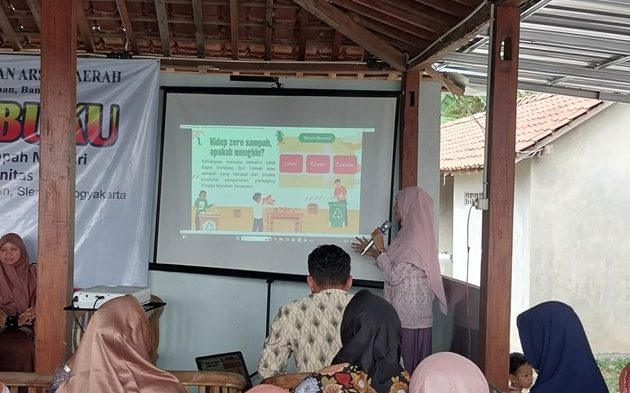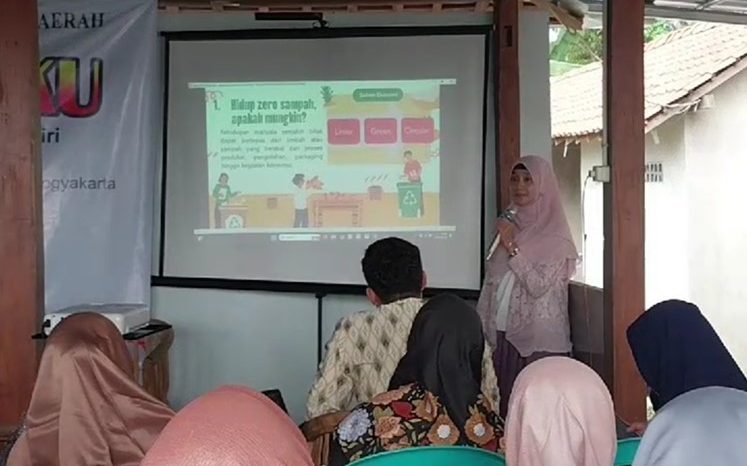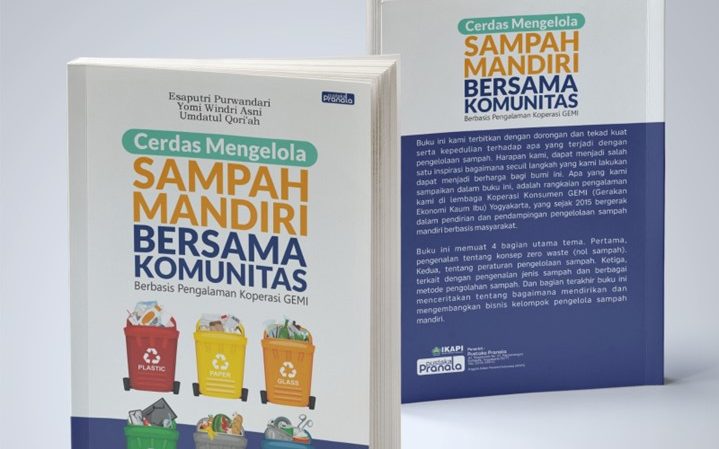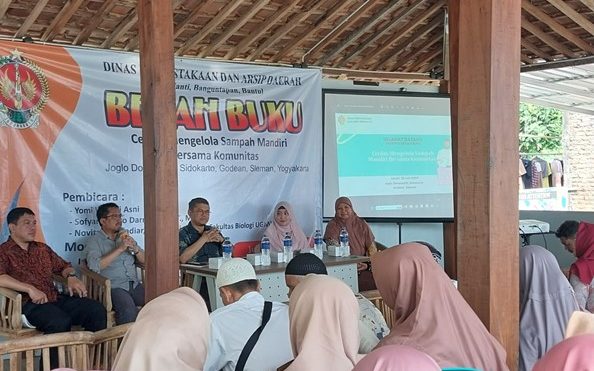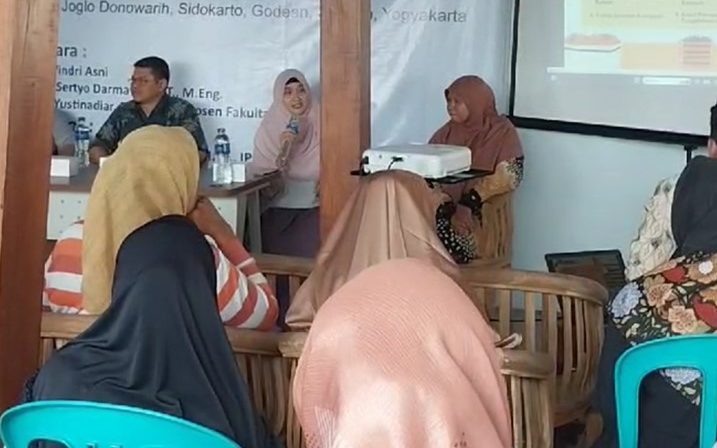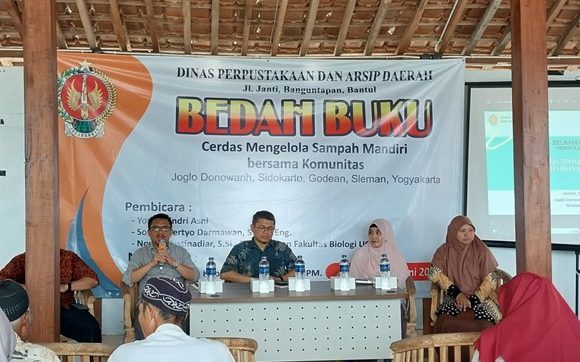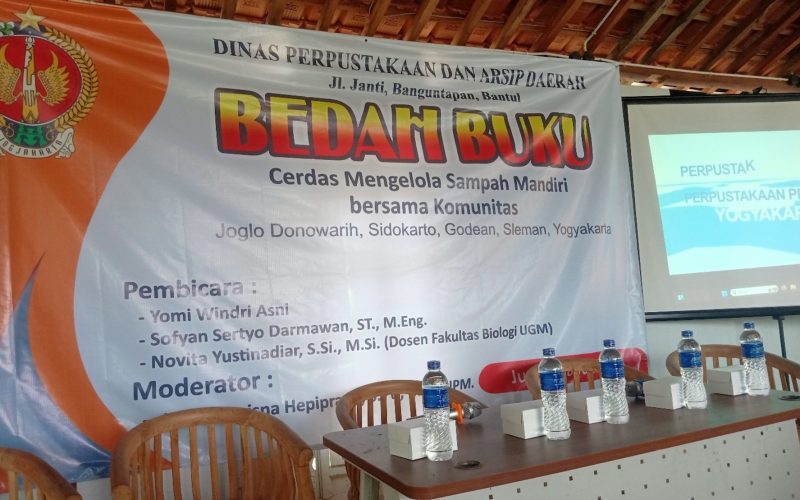Joglo Donowarih, Sidokarto, Godean, Sleman, Special Region of Yogyakarta – On Friday, June 28, 2024, the DIY Regional Library and Archives Office hosted a book review titled “Smart Waste Management with Community” in Sidokarto, Godean. The event drew 120 participants from 7 villages in the Godean sub-district interested in becoming catalysts for waste banks and adopting zero waste practices.
The event was prompted by the closure of the Piyungan Landfill, which led to increased community incineration of waste, heightened air pollution, and potential health risks. In response, the DIY Regional Library and Archives Office organized a book discussion led by Mr. Ir. Twaistrisna Hepiprana S.Pt., M.M., IPM., with opening remarks by Mr. Rakhmat Sutopo, S.E., Head of Static Archive Management at the Regional Library and Archives Office, and a speech by Mr. Sofyan Sertyo Darmawan, ST., M.Eng., a member of the DIY Provincial DPRD.
The book “Smart Waste Management with Community,” authored by Esaputri Purwandari, Yomi Windri Asni, Umdatul Qori’ah, and Muzna Nurhayati, was presented by Mrs. Novita Yustinadiar, S.Si., M.Si., a lecturer from the Laboratory of Plant Structure and Development, Faculty of Biology UGM. It discusses practical waste management approaches based on the experiences of the GEMI cooperative. The discussion highlighted the book’s relevance, clarity, and direct applicability, showcasing successful waste bank initiatives and their effective strategies. The presenter emphasized key points, integrating biological insights, experiences from Japan’s zero waste initiatives, and practical experiences in organic and non-organic waste processing during Community Service in Dusun Sendari.
The discussion continued with a presentation by Mrs. Esaputri Purwandari, S.E., CFP., one of the book’s authors, who shared practical experiences in composting using various accessible methods such as pottery composters, stacked bucket composters, and managing inorganic waste through waste banks, as well as soap-making from used cooking oil to add economic value to waste and enhance community livelihoods.
Interactive discussions during the book event allowed participants to share their experiences and challenges in waste management. Community members expressed keen interest in learning about composting, recycling, and reducing single-use plastics. The discussion underscored the importance of basic environmental literacy and the application of the 5R principles: Refuse (rejecting single-use items), Reduce (minimizing single-use consumption), Reuse (reusing products), Recycle (processing recyclables), and Rot (composting organic waste) to tackle waste issues. It also highlighted three harmful waste practices to avoid: burning waste, burying plastics and metals, and dumping waste into the sea. These practices remain prevalent in the DIY community, necessitating heightened awareness campaigns about their environmental and legal repercussions as stipulated in Law Number 18 of 2008 on Waste Management, which prohibits improper waste burning and carries penalties of imprisonment or fines.
The event aimed to boost community literacy and awareness of sustainable waste management practices. The DIY Regional Library and Archives Office distributed the book for free as an initial step toward achieving these objectives. Similar successful events have been held in various sub-districts across DIY, contributing to broader efforts to disseminate knowledge and skills in effective waste management. The event aligns with Sustainable Development Goals (SDGs) 2 (Environmental Sustainability), 3 (Air Pollution), 4 (Basic Literacy), and 5 (Empower Girls), focusing on education for sustainability and community empowerment.

